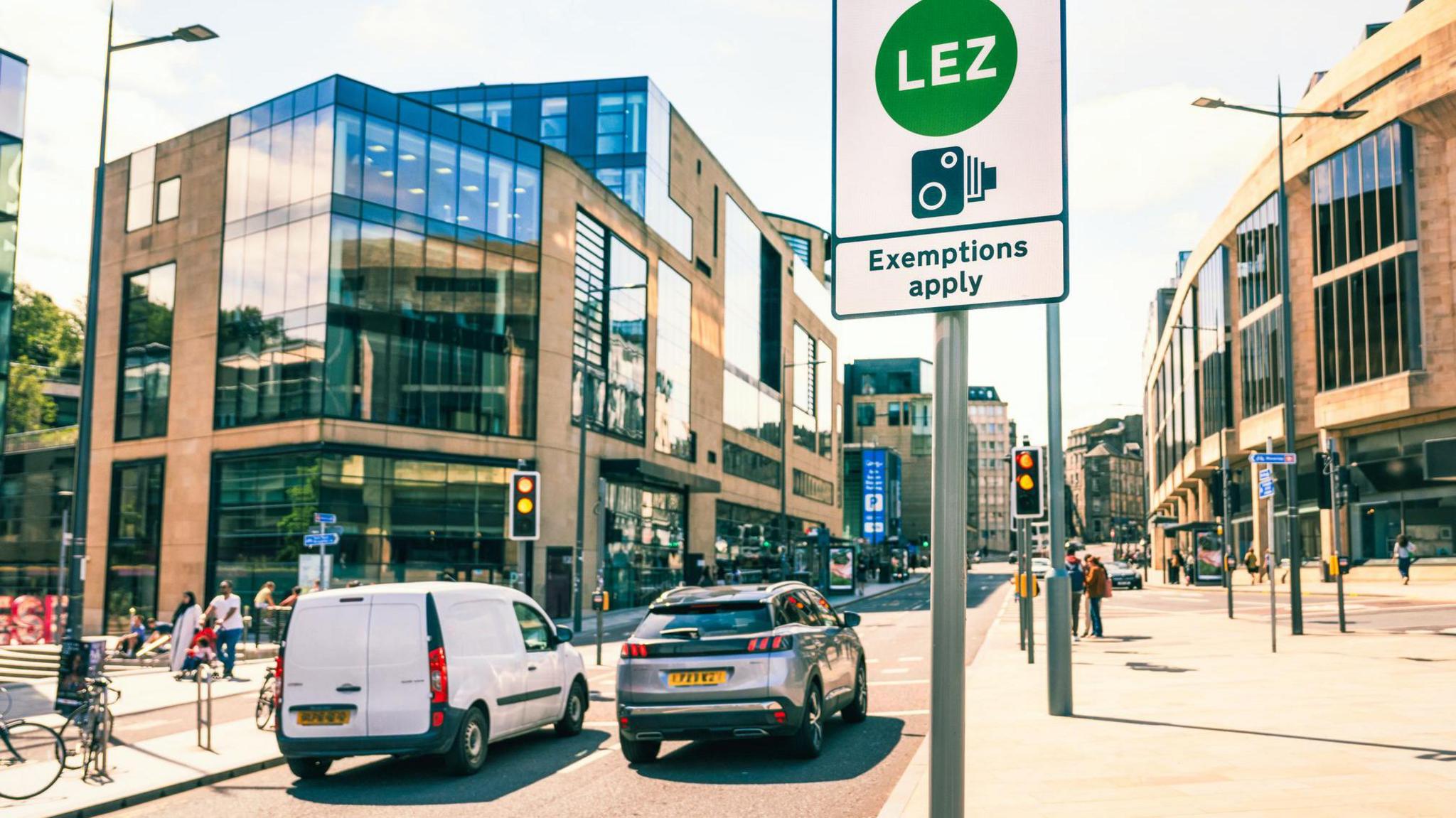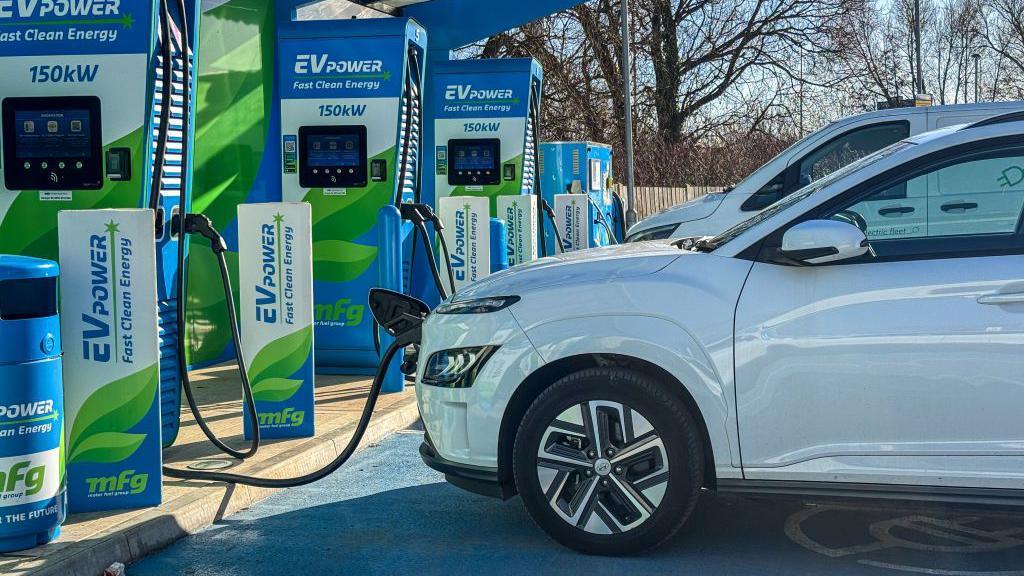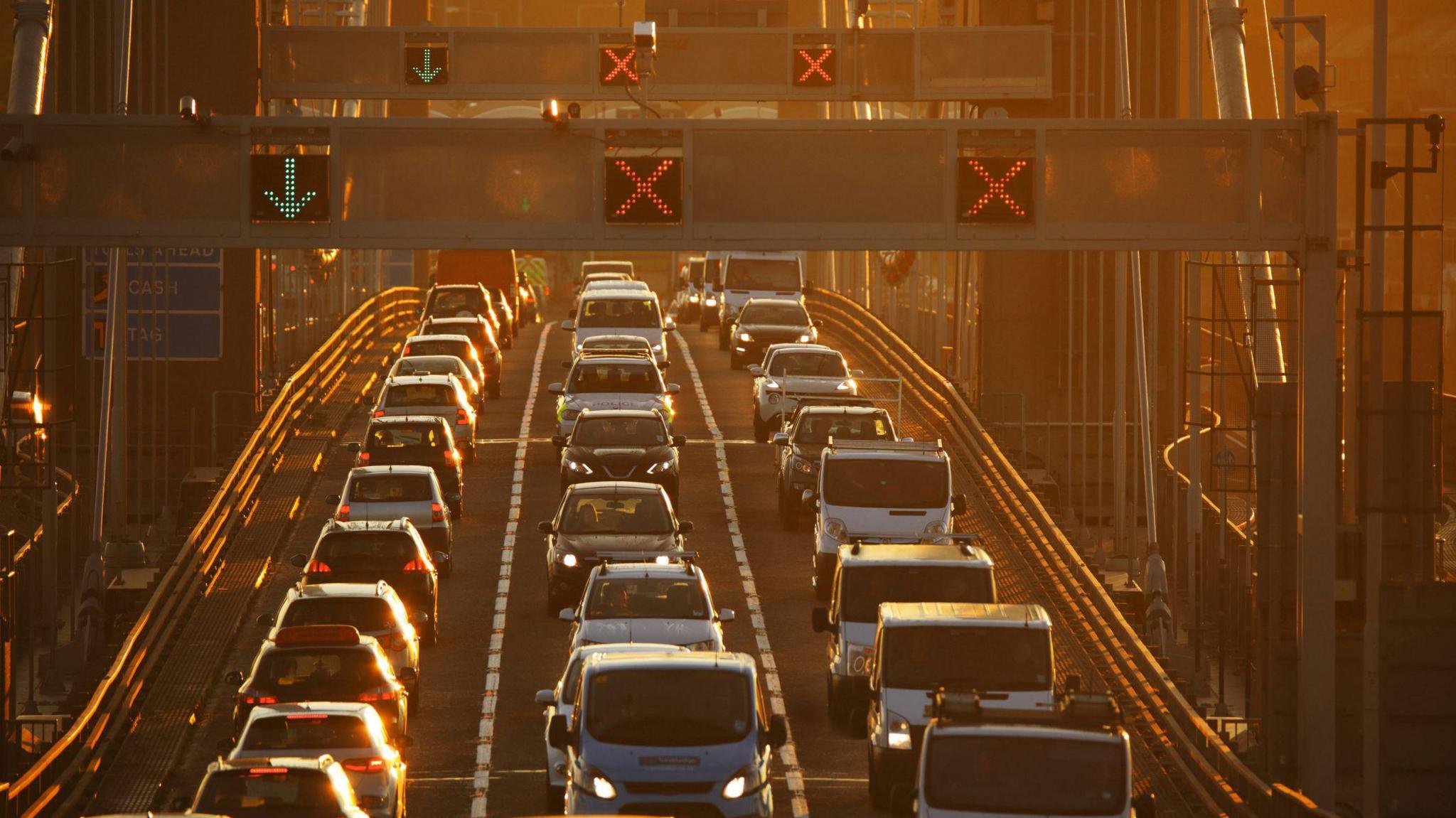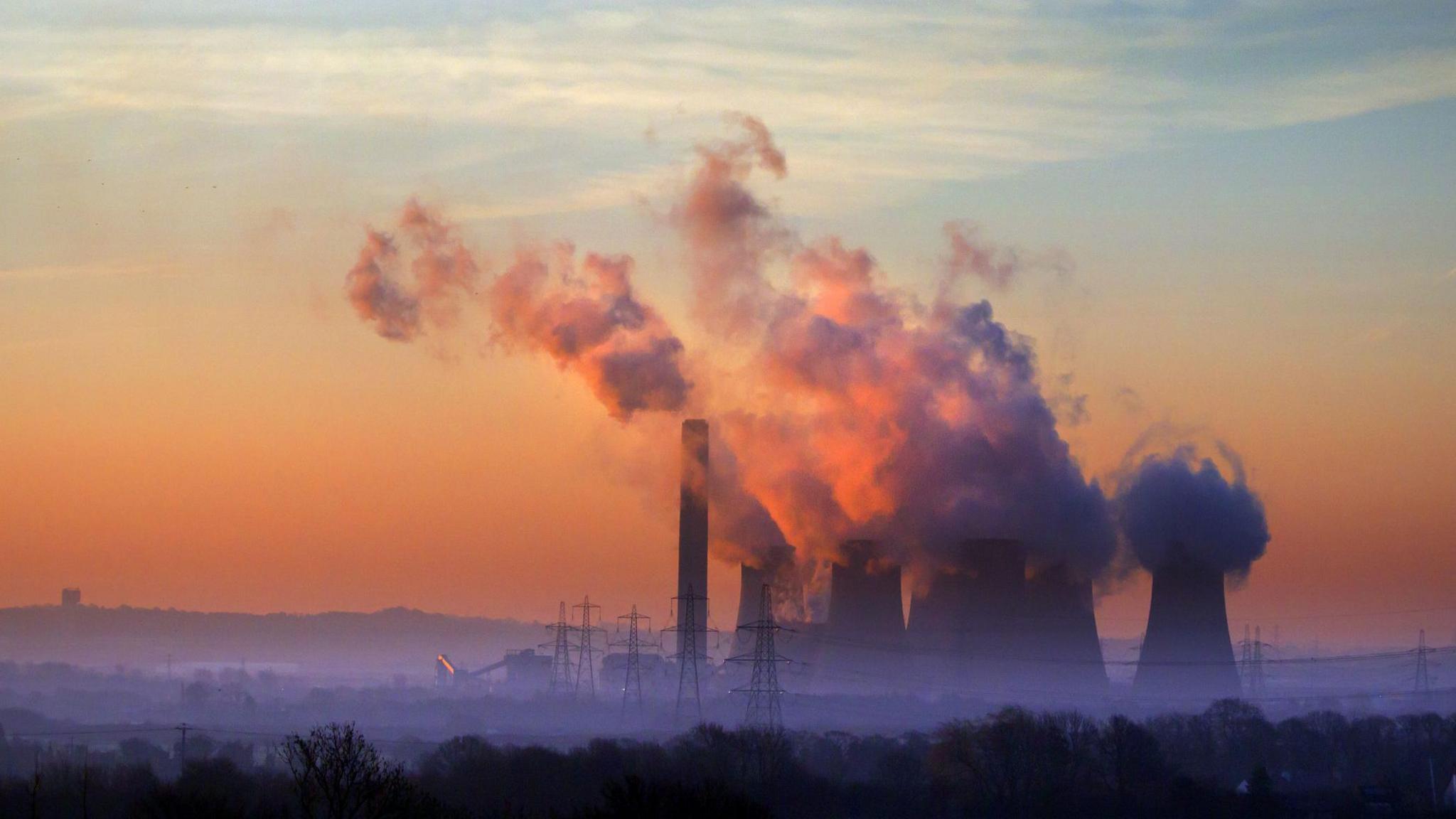Air pollution levels falling in the UK, say scientists

Low emission zones like this one in Edinburgh can help reduce air pollution in cities
- Published
Air pollution levels in the UK have dropped in the last ten years, say scientists from the University of Reading.
But they warn that high levels of pollution are still reached too often.
They say that target limits set by the World Health Organization are regularly being exceeded in the UK.
"The UK has made progress on air quality but there is still a long way to go," said lead author Dr James Weber.
Find out more about air pollution
What's air pollution and why's it so important? Video, 00:02:12
- Published30 April 2020
'I don't want my children breathing dirty air', says Prime Minister Sir Keir Starmer
- Published29 November 2024
Eleanor's award-winning rucksack fights pollution
- Published31 January 2023
What is air pollution?

Unlike petrol cars, electric cars don't emit gasses into the air so are often seen as a more environmentally friendly alternative
The air we breathe affects our health.
Industrial factories and vehicles like cars, trains and lorries emit gasses into the air.
These gasses include things like sulphur dioxide, nitrogen oxides and carbon monoxide.
Many of these gas emissions are harmful to humans, animals and nature if there is too much of them in our air.
This is what is known as air pollution.
What did the study find?

Traffic is a major contributor to air pollution
The scientists measured pollution at more than 500 sites across the UK to get their results.
They found that a gas called nitrogen dioxide had dropped by 35% on average across the sites they were monitoring.
Nitrogen dioxide is a gas that is mainly produced from transport like cars, lorries, buses and other traffic.
They also found an average reduction of 30% in the number of fine particles in our air.

The UK missed a number of targets set by the World Health Organization (WHO)
Despite these good results, the scientists were still concerned about the levels of air pollution in the UK.
They say the UK missed some key targets set by an international health group called the World Health Organization (WHO).
For example, the average number of days each year when nitrogen dioxide exceeded WHO targets fell from 136 to 40 days.
This means that while air quality seems to be improving, the UK is still regularly missing targets.
Dr James Weber said: "Pollution from traffic is getting better, but we need both local action and international cooperation to improve all types of air pollution."
